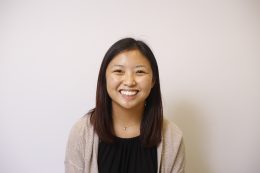
One of the most common questions that my friends and I are asked as seniors is “What are your plans after graduation?” For some of us, the answer is clearer than it is for others. Personally, I’ll be attending graduate school at Columbia University for my MFA in nonfiction. My best friend is going to begin her career as a registered nurse and another is headed back home to the city to begin work. But for some graduating seniors, the answer remains up in the air, which can spike high anxiety for those of us with dollar signs over our heads as symbols of looming debt.
The College Senior Survey was developed by University of California, Los Angeles as a means to measure the “real-life readiness,” to put it frankly, of college seniors in their final semester. Questions refer to the quality of education that the student feels they received, education and career development, relations with faculty and mentors and academic progress. The question that stuck out most to me was a multiple-choice question: “Are you planning to do the following in 2018? (Mark yes or no for each item).” Options include: “Work full-time,” “Work part-time,” “Attend graduate/professional school full-time,” “Complete additional undergraduate coursework/Post-baccalaureate program,” “Participate in a service organization like the Peace Corps, AmeriCorps/VISTA, or Teach for America,” “Serve in the Armed Forces,” “Travel,” “Perform volunteer work,” and “Stay at home to be with or start a family.”
The issue that I take with this survey is that there is no option for “Other.” There is no room for the student who wants to take a gap year to relax (and perhaps not even work, if they have the means), for the student who has medical issues that will require intensive care, for the student who is unemployed and without an offer from further education or for the student who is unsure. The invisible possibilities are endless, but this survey does not state that these options are not limited, nor does it suggest that a 21-year-old is much more prepared to enter the real world, so to speak, than an 18-year-old.
When discussing graduation with my friends and professors, the most common words that come up are fear, excitement, burnout and “what the hell.” Coming out of four (or three, in my case and the case of several of my friends) straight years of college is exhausting. It makes sense to take a gap year, to make some money and relax a bit. But in the world of “adulting,” there seems to be no such break. Taking a year off can result in a weaker application to graduate schools and higher anxiety, in some cases; in others, it can be just what is needed to recharge and choose what to do next.
There is no clear explanation, no handbook for what to do after years of schooling, internships and part-time work. And for those of us with high-functioning anxiety and perfectionistic personalities, those uncertainties can be unsettling. Saying that it will all work out and that the universe is on our side seems patronizing. Yet, we can walk out with the knowledge that we are educated individuals who have the power to choose what we do next and perhaps even find comfort in that freedom.
Kara Bilello is a senior double-majoring in English and Spanish.


